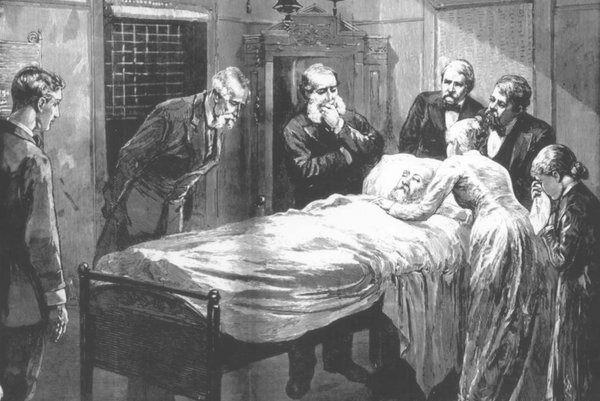August 14th, 2015
The Answer
Ahmad Yousaf, MD

Ahmad Yousaf, MD, is the 2015-16 Ambulatory Chief Resident in Internal Medicine at Rutgers New Jersey Medical School.
“Please answer my call.”
That was the text I received over the weekend from a friend after having missed his call. I called back and he was panicked: “what is alpha… al… alteplase?” There was a pause as I waited for context… “My mother-in-law… she went into cardiac arrest. They got her heartbeat back, but they said she needs that medicine… should they give it?”
After hearing the context, I advised him that I thought it made sense — that they should give alteplase a try, given how critical the situation seemed. I hung up the phone. I had been sitting on a lawn chair in my backyard studying for the boards and, although I knew what the answer to this clinical question was on the ABIM, a feeling of uncertainty filled me. Without knowing what had just occurred on the phone, my wife saw my face and could tell something was wrong. I explained what was happening and that I needed to go to the hospital to be there for my friend.

By the time I arrived to the hospital, the situation had deteriorated further. The patient’s loving family was in all stages of grief as their mother/sister/aunt held on to life with the support of pressors and a ventilator. I wanted to do something but knew it was not my place. I was a doctor in an alternate universe but today… today, I was just a friend. I gave a hug or two and awaited news on the status of the sweet woman who lay critically ill behind the ER curtain. She was the mother of 5 wonderful adult children, 2 of whom I have the pleasure of knowing. They are the type of people who never meet you without warm smiles and that ‘big-family’ type of love. On this day, however, I only saw pain in their eyes. I stood in the ER corridor with family I had never met and bowed my head and prayed with them.
An ER resident emerged from behind the curtain with a walk I was all too familiar with. He had bad news, and I could see his mind racing with the words that were going to be needed as he approached a large family who sat on the edge of hope and despair. The family collectively leaned forward as the resident fumbled with medical jargon like “coded,” pulmonary embolism, tPA, vasopressors, and futility. The eldest son frantically asked the questions on the mind of everyone except me: “What does all of that mean? Is she going to be okay?”
The resident took a deep breath and reworded his initial statement in an even less coherent manner. He was struggling. They were struggling. He concluded his ramblings with a request of clarification of code status and ‘DNR.’
It has always been a personal frustration of mine to see a physician drop a bad-news bomb on a family and, then, in the time of their biggest vulnerability, saddle them with the burden of a perceived ‘decision’ that never really existed to begin with. I put my hand on the shoulder of the resident mid-sentence and asked him to give us a few minutes. He gave me a look of relief and quickly escaped away to the sanctuary behind the nurse’s station. I have always felt comfortable delivering bad news and saying what needs to be said, but this day was different. I felt like a man between the two worlds of healthcare: the deliverers and the receivers.
She peacefully passed away about an hour later with her caring family around her. She was surrounded by their affection and prayers. I was a witness to their love and in awe of their display of absolute class and dignity. At one point, I absconded to my car and looked at the stethoscope and white coat that lay in the passenger seat. I concluded that so little of medicine had to do with those archetypal items that lay there and so much more of it with the intangible… The figurative space between a physician and his patient/family is full of that unquantifiable mixture of love, respect, fear, and worry. It is up to us to manage that space. That is our domain and our responsibility. The white coat… the stethoscope… the prescription pad… never has and never will be the answer.

~Yousaf


Wonderfully written piece reflecting on the irony that as medical science and technology improve us doctors’ ability to render care, our communication and humanity seem to suffer.
Really well said.
Begin by saying, “I’m afraid I have bad news.” This is the most important thing.
“That is our domain and our responsibility.”
Well-said.
In your last sentence, after “prescription pad”, I would add “and especially .the computer”…
Thank you.